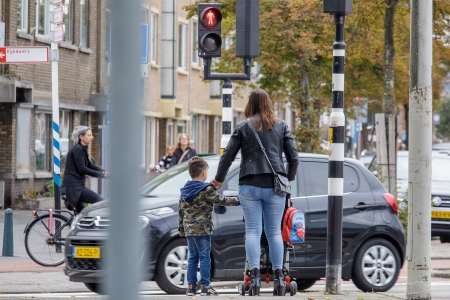Traffic education is relevant to everyone at every life stage. It is relevant to all road users who, in every possible road user role, do not have (sufficient) knowledge, insight, skills and motivation to participate in traffic safely and who are capable of learning. Thus, it is not only meant for children, but also for novice (light) moped riders, novice drivers, older drivers, novice pedelec riders, novice mobility scooterists and so on. This is called lifelong traffic education.
Lifelong traffic education stands for the idea of providing traffic education for every age group and every mode of transport. The goal is to create the conditions for safe road user behaviour in terms of knowledge, ability and willingness. These elements lead to a formal definition of lifelong traffic education: a coherent package (in terms of both age-related development and road users’ mode of transport) of consecutive and continuous activities aimed at internalising change or continuing the desired safe road user behaviour, by creating the necessary conditions for the desired behaviour (of knowledge, ability and willingness)” [2]. There are six age-based target groups within lifelong traffic education:
- age 0 – 4 (early and preschool education)
- age 4 – 12 (primary education)
- age 12 – 16 (secondary education)
- age 16 – ca. 25 (novice drivers)
- age ca. 25 – ca. 60 (driving licence owners)
- age 60 and over (older road users)
